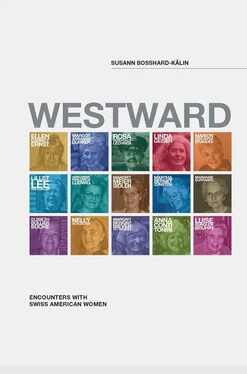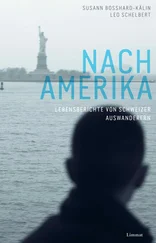Leo Schelbert - Westward
Здесь есть возможность читать онлайн «Leo Schelbert - Westward» — ознакомительный отрывок электронной книги совершенно бесплатно, а после прочтения отрывка купить полную версию. В некоторых случаях можно слушать аудио, скачать через торрент в формате fb2 и присутствует краткое содержание. Жанр: unrecognised, на английском языке. Описание произведения, (предисловие) а так же отзывы посетителей доступны на портале библиотеки ЛибКат.
- Название:Westward
- Автор:
- Жанр:
- Год:неизвестен
- ISBN:нет данных
- Рейтинг книги:3 / 5. Голосов: 1
-
Избранное:Добавить в избранное
- Отзывы:
-
Ваша оценка:
- 60
- 1
- 2
- 3
- 4
- 5
Westward: краткое содержание, описание и аннотация
Предлагаем к чтению аннотацию, описание, краткое содержание или предисловие (зависит от того, что написал сам автор книги «Westward»). Если вы не нашли необходимую информацию о книге — напишите в комментариях, мы постараемся отыскать её.
Westward — читать онлайн ознакомительный отрывок
Ниже представлен текст книги, разбитый по страницам. Система сохранения места последней прочитанной страницы, позволяет с удобством читать онлайн бесплатно книгу «Westward», без необходимости каждый раз заново искать на чём Вы остановились. Поставьте закладку, и сможете в любой момент перейти на страницу, на которой закончили чтение.
Интервал:
Закладка:
Recently Margot was asked to write an article about feminism in America. “The more I got involved, the more fascinated I became. In my career I had never experienced any incident of discrimination. My male colleagues were always polite and supportive. I strove to do my best, but never had to fight for my rights in my profession. Feminism was not really a theme for me. Therefore I was very astonished when I read Betty Friedan’s Feminine Mystique , and then later the Frauen im Laufgitter of the Swiss feminist Iris von Roten and became aware of their tireless efforts for the cause of women. I see how fortunate I have been. Young women today impress me as being far more aggressive, perhaps because they are in larger numbers and present more of a challenge to the men.”
Now Margot leans back in her chair and relaxes. “I stand in the final act of my place on stage. It was a pleasure to bring up so many memories and to peak through the doors into my past.” And then more to herself: “I am ready to go on to my next world any time. I take the days as they come and know that in my age ‘everything is the beginning of the end.’ I hope to be able to keep my independence and to stay in my own four walls, but if fate deems otherwise, to accept the changes with dignity.”

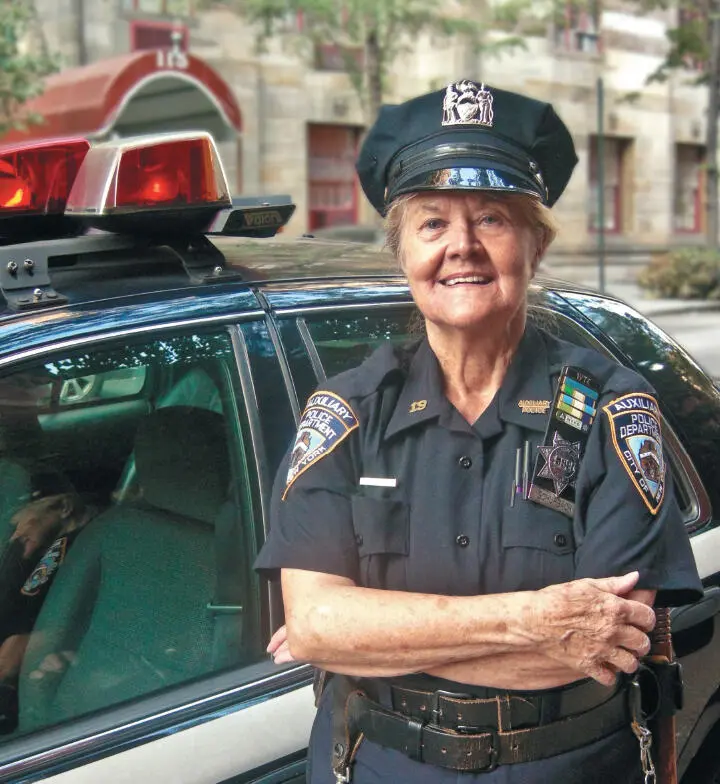
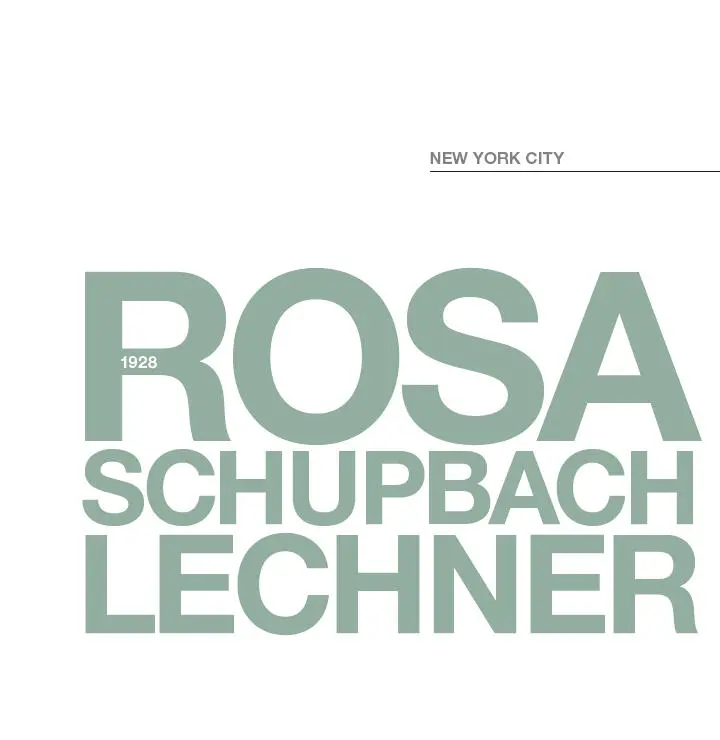
No sign of jet lag even though she landed in Zurich just a few hours ago. Rosa Schupbach-Lechner comes to Switzerland every year half a dozen times. She is past 80; yet the petite woman with grey-blond hair that comes down to the shoulders looks like 60. Her inquisitive blue eyes seem to ask: What else is there to experience?
The suitcases are not yet unpacked, yet the sprightly woman in a sporty pantsuit is already elegantly offering tea with cookies. “Years ago I came to visit my mother; today I come to meet old friends in Switzerland and relatives in Germany. I feel the need to cultivate my roots in Switzerland and Europe.”
This time Rosa Schupbach-Lechner plans to go even farther east to Singapore. “I want to build up my frequent flyer miles in order to keep my gold card from Miles & More,” she says playfully. As an economist, calculating comes easy for her, and with a roundtrip-ticket around half the world she will reach the required 100,000 miles without any problem.
There is even more on her program: Before flying back to New York she has dates in Germany. “In my mother’s hometown in the Black Forest I will give two talks about my life.”
The house of her grandparents is still standing; it’s where her mother with her twelve siblings grew up in very modest circumstances. Rosa has preserved lots of mementos of her parents, certificates, pictures that she fetches while narrating her life.
Her mother, Marie Ozeler, came to Switzerland as a maid in 1910. Her father, Florian Lechner, the son of a small gardener in Vienna, trained as a butcher’s assistant and later a head butcher making sausages, emigrated from Austria to Switzerland in 1911. He was ambitious. After years as apprentice and journeyman with different master butchers he dreamed of becoming independent in his new home country. In Zurich-Oerlikon a workers’ restaurant, the Dörfli , was up for rent. Yet he didn’t have a wife who could help. He told his colleagues, and one of them gave him a tip about an industrious waitress by the name of Marie who worked in the restaurant at the Klusplatz. She fell in love with the handsome go-getter with his bold dreams. “Mama married in a black dress and high, sturdy shoes. This was the custom for people from the lower income classes at that time. What would she have done later with a white dress and elegant shoes?”
On September 24, 1918, at 6 a.m., after the wedding night the Lechner’s small restaurant opened. “My mother had to wait with buying milk and bread until the first glasses of beer had gone over the counter. After the wedding father had not even a cent left. Thanks to his insistence that he had a full wallet, he had been given the first supply of beer on credit.”
Hans, their first child, was born exactly nine months later, on June 24, 1919. “At that time Mama had to pay 155 francs and 60 cents for her 13 days in the Frauenklinik , the women’s hospital. This was a vacation for her.” Usually they could not even think of taking any days off. For 7 years the young couple worked 17 hours a day in their restaurant, which did well; the workers from the nearby factories liked to stop at the place of the friendly Lechners.
By 1925 they had toiled and earned enough, and they got an offer to purchase the butcher store next door. “Now mother was in the store, father in the butchery.” Their hams and sausages were popular. “On Sundays father would usually go to the farmers in Rümlang or Wallisellen and buy cattle that the butcher helpers had to herd on foot to the small slaughterhouse behind the butcher store.” Father Lechner was a good businessman, had a wonderful way with people, and was lucky – with money too. Mother was the soul of the business. In 1926 the immigrants became Swiss citizens.
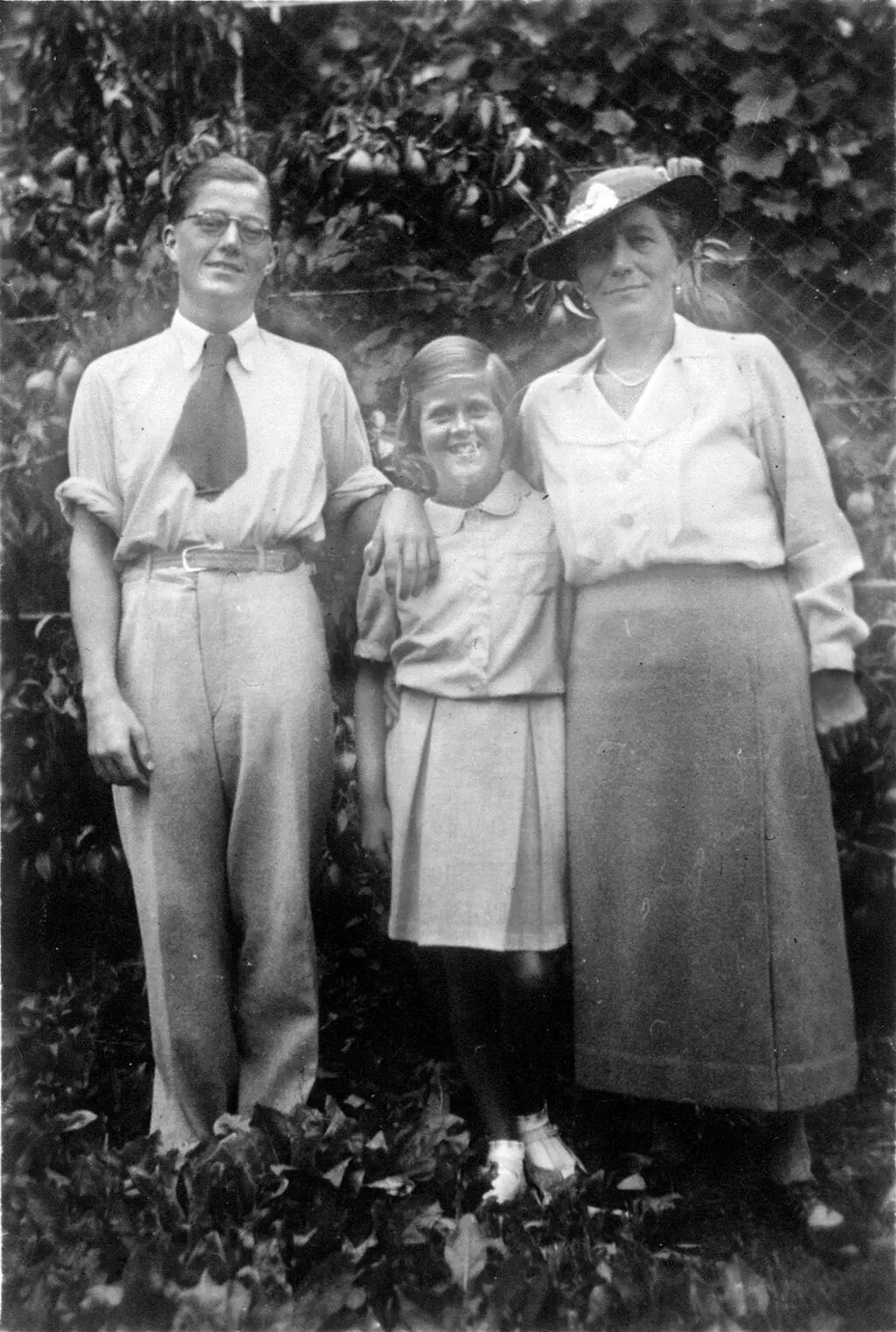
“Mother was tender and loving. And my big brother Hans worshiped me.” (around 1935)
In 1928, Rosa, the only girl, was born as a latecomer into this turbulent business household, nine years after her brother. “Father was very proud of me, Mother tender and loving. And my big brother Hans worshiped me. However, our parents did not have much time for us children. They worked day and night. ‘Now it’s enough!’ father said, sold the butcher store after eight years and retired at the age of 50. He decided dictatorially that we would move to Lucerne.” Rosa remembers her kindergarten, her first little friend. “She lived in the same house. I thought they were distinguished people. My friend smelled of perfume and powder. I would want this too, I thought, later in life. At the most my mother would buy lavender-water.” The Lechner children felt little of their parents’ prosperity. Their motto was “above all, not to spoil them, this is harmful.” Father Lechner was restless, felt compelled to set up something new and built a house with four apartments in Lucerne-Mayhof. Still, he found no rest.
“One day he surprised us without warning: ‘We are moving to the Ticino!’, the Italian-speaking part of Switzerland. My brother was not affected, since he was already doing an apprenticeship. I was in third grade, had many school friends and was abruptly uprooted. Yet I simply adapted and even found it adventurous.” Mother had no say in this, and in March 1938 moved, without complaining, all our belongings for the umpteenth time. “This time father rented a four-storey villa in a large park in Castagnola.” For Rosa everything was new again, including the language. “It was a wonderful time for me, ‘il mio paradiso , my own paradise’. On foot I went to the Swiss-German school in Lugano, swam in Lake Lugano and played for hours in the enchanting park. I did not know what boredom was. Dozens of animals were my playmates – geese, chickens and rabbits.” In 1939 oil became scarce. “We lived on only one level in the villa and burned wood in our furnace.” Father Lechner eventually abandoned the paradise, and the family moved into an apartment in Lugano Besso. “Even today I remember the loss of the park with sadness.”
Читать дальшеИнтервал:
Закладка:
Похожие книги на «Westward»
Представляем Вашему вниманию похожие книги на «Westward» списком для выбора. Мы отобрали схожую по названию и смыслу литературу в надежде предоставить читателям больше вариантов отыскать новые, интересные, ещё непрочитанные произведения.
Обсуждение, отзывы о книге «Westward» и просто собственные мнения читателей. Оставьте ваши комментарии, напишите, что Вы думаете о произведении, его смысле или главных героях. Укажите что конкретно понравилось, а что нет, и почему Вы так считаете.
